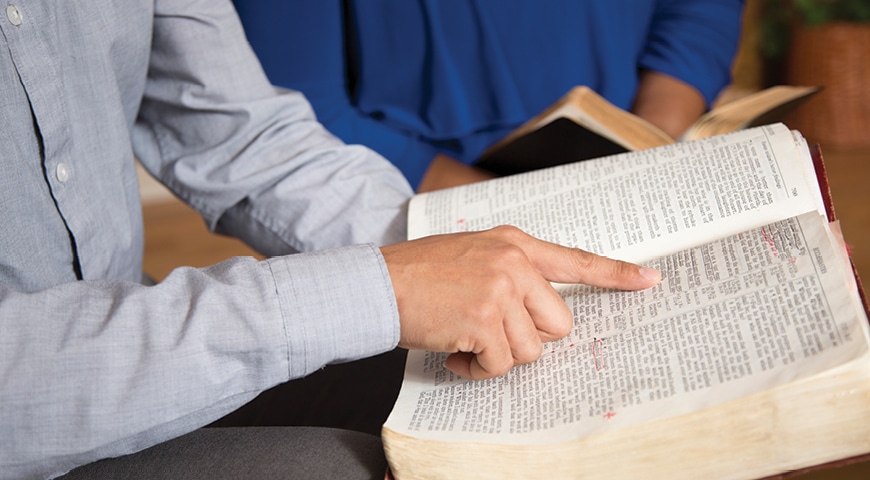I know that this term is strongly supported by some Christians and vigorously challenged by others. When did it originate and what does it mean?
This expression arose during the Reformation in 16th-century Western Europe. It was a challenge to the suggestion that God’s self-revelation comes through Scripture and tradition. Martin Luther and other reformers said that this slighted the importance of Scripture and justified many practices not authorized by Scripture, for example, the selling of indulgences to build St. Peter’s Basilica in Rome.
A problem arises because most Christians understand Scripture as the books of the Bible: its table of contents, so to speak. That table of contents, however, was not revealed in the same sense that the Book of Genesis or the Gospel of Matthew was revealed.
Some people understand Scripture alone as shorthand for saying “Only God was involved” regarding certain issues, whereas tradition is understood as meaning “Humans had a hand in this issue, and thus they should be disregarded.” Like many catchy slogans, this solution is simply not true. What is intended as a shortcut to something good can, in fact, turn out to be a dead end.
The canon (list of biblical books) was not generally agreed on until the fifth century after Christ. The Catholic Church made no official and binding declaration about this list until 1546, a year after the Council of Trent began. The community of believers (Jews for their Scriptures and Christians for theirs) played an absolutely crucial role in recognizing which writings are trustworthy sources of God’s self-revelation. Some very old writings are not part of the Bible because Jews or Christians did not find their faith reflected in those texts.
A very rigid understanding of Scripture alone would mean that Christians or Jews can make no moral judgments, for example, about nuclear war because that was not possible (and, therefore, not mentioned) when the Bible was written.
On the other hand, a very loose understanding of tradition would enable its promoters to promote ideas or practices that clearly contradict what the Bible teaches.
Some people gravitate toward “either/or” language, but in many situations “both/and” language is needed in order to be faithful to God’s self-revelation in the Scriptures and within the faith community.









1 thought on “‘Scripture Alone’ ”
If Catholics refer to the disciples (1Timothy and Titus)as the first Bishops then why can’t they marry? And if you refer to Peter as the first Pope he was also married (Corinthians 9:5) ? I know there is scripture (1 Corithians 7) that says it is better to not be married, however this seems to be a contradiction of scripture in the practice of no marriage for leaders in the Catholic churches leadership model.